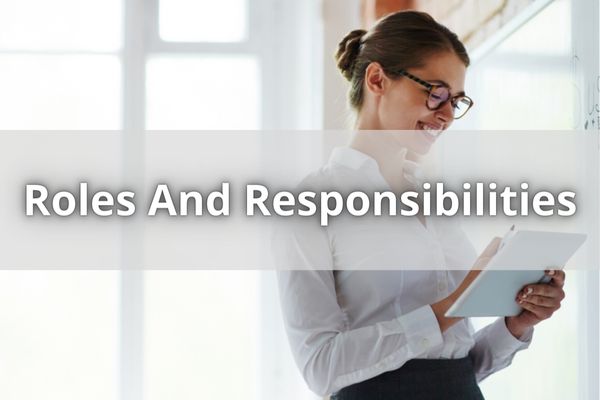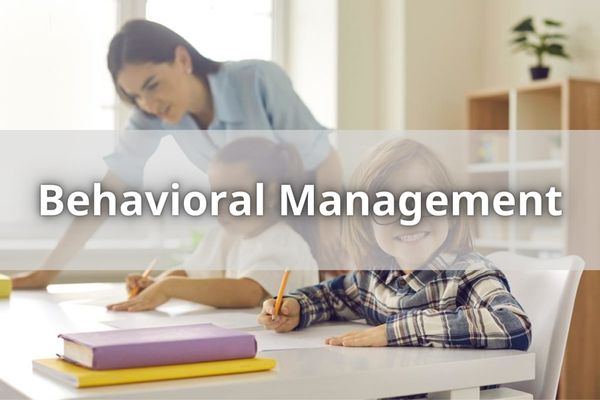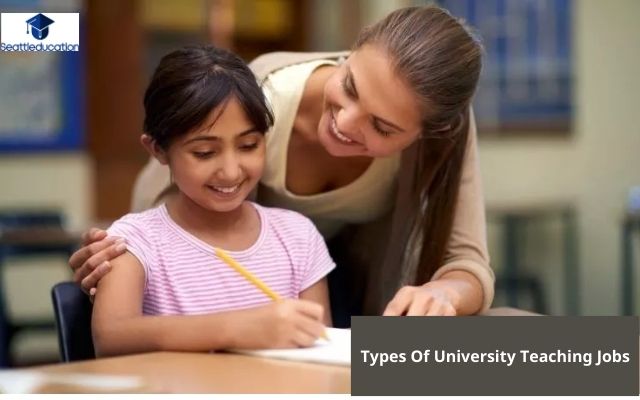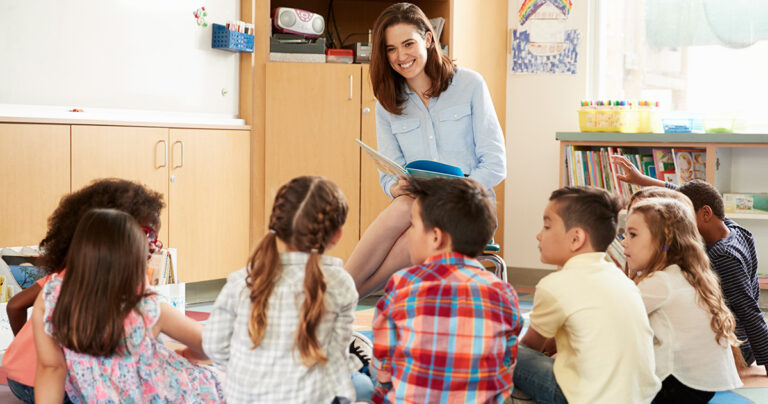School Counselor Vs Teacher: What Are The Differences?
School Counselor Vs Teacher. You may have pondered the distinctions between a teacher and a school counselor while you were a student. Given how closely their duties resemble one another, it might be challenging to determine which one is giving you the support you require. Well, let me tell you, these two professions are distinct from one another due to a few significant differences.
To help you comprehend how school counselors and instructors are different from one another, we’ll go through the educational requirements, duties, and more in this post.
Roles And Responsibilities

The two roles have differing responsibilities, making it essential to understand the distinctions between them. The main responsibility of a teacher is to instruct pupils in a particular topic while also preparing lessons and keeping track of their development.
A school counselor’s job is considerably more all-encompassing; they must evaluate the academic success, social, emotional, and behavioral problems that their pupils are experiencing before coming up with solutions to assist them deal with any obstacles. To ensure that a student’s needs are satisfied both academically and emotionally, school counselors collaborate closely with parents and teachers.
School counselors may provide direct services such as individual counseling or group counseling for topics such as stress management or anger management. In contrast, a teacher does not typically provide such services directly; instead, they refer students who need extra assistance to the school counselor or other appropriate resources within the school community.
Teachers also have an important role in assessing student progress by providing regular feedback on learning outcomes in their respective subject areas.
When it comes to education requirements for these roles, there are some differences that should be noted. To become certified in most states, a person must hold a Bachelor’s degree for teaching positions while certification for school counselors requires at least a master’s in school counseling degree.
Moving forward into this section of comparison will further clarify the distinct nature of these two roles within schools today.
Education Requirements
Knowing educational requirements is essential for anyone working in the field, be it a counselor or instructor. Becoming a school counselor requires obtaining a counseling degree, usually at the master’s level.
The American School Counselor Association (ASCA) recommends that school counselors earn a Master’s degree in School Counseling. This type of graduate program helps counselors learn specific skills and techniques to support students need with their academic, personal/social, and career development.
Teachers who want to work from the classroom into the role of school counselor must complete additional coursework beyond their teaching credential to obtain a master’s degree in counseling or school counseling. Through this specialized coursework, teachers gain knowledge related to the theories of human behavior and mental health assessment strategies needed as successful school counselors.
In addition to completing an education-based program, both teachers and prospective counselors need to become licensed by their state board of education before they can practice as professional school counselors. Obtaining licensure requires supervision from experienced professionals and passing national examinations set by ASCA standards.
With these qualifications met, individuals are well on their way towards becoming an effective counselor in the field of education. With relationship building being an important part of being successful in this profession, having the right tools can make all the difference when helping students reach their highest potentials.
Relationship Building
Building relationships is a key component of being an effective counselor, and having the right tools can make all the difference in helping students reach their fullest potential. Counselors are tasked with understanding each student as an individual and building trust between them while also establishing meaningful relationships with teachers.
It’s important for counselors to act as mentors by showing empathy towards each student’s unique situation and providing support when needed. This allows counselors to become a source of advice and guidance that students can use to reach their goals.
Relationship building between the student and teacher is also essential for success in many cases. A good teacher should be able to foster an atmosphere of respect among themselves, the rest of the teaching staff, and the pupils they are responsible for. Through open communication, they should be able to develop a sense of trust so that any issues can be resolved promptly before they become too challenging for either party.
Both sides need to possess strong interpersonal skills including active listening, problem-solving skills, and communication skills for counseling or teaching strategies to be effective. These skills enable them to gain insight into one another’s perspectives. By understanding each other’s viewpoints, counselors and teachers alike will have better chances at effectively helping students achieve their academic goals.
With these tools in hand, academic advising can go beyond simply providing information but rather turn into something more meaningful that helps shape a positive future trajectory for each student they serve.
Academic Advising
Advising students academically can be a fulfilling experience for both parties, as it allows the counselor and teacher to work together to reach their goals in meaningful ways. A school counselor has the unique opportunity to bridge the gap between student and administrator, often recommending courses or activities that will might benefit each individual student. An educator is able to take into account not only the academic performance of an individual but also any extenuating circumstances they might face.
Here are some examples of how a school counselor can provide academic guidance:
- Helping students identify possible career paths by assessing their interests, skills, and values
- Working with administrators to ensure that high-achieving students have access to challenging coursework
- Collaborating with teachers to recommend appropriate classes and resources for struggling students
Academic advising from counselors gives each student an advocate who understands them on a personal level and is dedicated towards helping them reach their full potential. A healthy learning environment where everyone’s needs are taken into account is created by the combined effort between the teacher, student, and administration.
With this sort of structure in place, educators can more effectively provide the resources required for success for every member of their community. Having navigated these waters before themselves, counselors understand just how important it is for students to have someone advocating on their behalf during times of difficulty; making sure they don’t fall through the cracks in pursuit of reaching educational goals.
As we move forward into our discussion about behavioral management, it becomes even more evident why having such an experienced guide available at school is so valuable for all involved.
Behavioral Management

Gaining insight into how to manage student behavior can be invaluable for any educator, allowing them to create an effective learning environment that meets everyone’s needs. School counselors and classroom teachers alike have an important role in helping students develop appropriate behaviors, as well as providing guidance when needed.
Counselors are exceptionally skilled and competent in the teaching and counseling fields, which makes them particularly beneficial when dealing with complex or severe behavioral difficulties. Additionally, school counselors frequently collaborate closely with a school’s counseling program to guarantee that every kid is getting the assistance they need to continue behaving positively.
Understanding a student’s unique requirements and offering the appropriate solution may make all the difference in their ability to succeed academically and get care for their mental health. School counselors are trained professionals who understand how best to handle behavioral problems such as aggression or rude behavior, while also having expertise on how different ways can be used for constructive results.
Additionally, they are able to provide individualized strategies tailored specifically for each student’s unique situation. This allows school counselors to not only help address immediate issues but also prevent future behavioral concerns from arising.
It is clear that both school counselors and classroom teachers have an important part to play in managing student behavior effectively. Although classroom instructors may interact with children more often on a daily basis, it is crucial that they work along with the school counselor if any long-term adjustments or disciplinary action is required.
Both roles may make sure that every student has the assistance they require for a good learning experience both inside and outside of the classroom by working cooperatively together. Moving forward into addressing mental health support…
Mental Health Support
With the rise in mental health issues among students, it’s essential for educators to provide comprehensive and individualized strategies to support their well-being. When it comes to mental health support, school counselors are uniquely qualified by having a Master’s degree in counseling and specialized training in this area. They play an invaluable role in helping students manage life stressors and crises throughout the school year.
They have the expertise to help identify special needs within a student’s social-emotional development, as well as offer resources that might be beneficial for them. Here are some ways that school counselors can provide mental health support:
- One on one counseling with a therapist
- Building relationships of trust and mentorship
- Creating safe spaces for open dialogue
- Providing education on various topics related to mental health
- Offering referrals for additional services when needed
School counselors establish a caring relationship with each student they work with so they can better understand their unique challenges. By providing this kind of individualized care, school counselors empower students to develop resilience and foster healthy habits that will last beyond the school year.
As such, these professionals are integral in creating an environment where all students feel accepted and supported regardless of their personal circumstances. Transitioning into college or career readiness is an important step towards achieving success later in life; however, without proper emotional wellbeing, academic progress may be limited due to underlying psychological issues.
College And Career Readiness
School counselors are uniquely positioned to provide students with the guidance and resources they need to make a successful transition into college or career readiness, equipping them with the skills and confidence necessary for long-term success.
Counselors help students develop an individualized plan that takes into account their interests, abilities, and desired educational outcomes. This includes exploring potential career paths that align with these goals and providing support when researching colleges or postsecondary programs. School counselors can also assist in developing valuable skills such as time management, financial literacy, goal setting, organizational techniques, and study strategies.
Counselors have even more expertise than classroom teachers do in many areas since they typically hold a Master’s degree in counseling or have specialized certification in college and career readiness. Additionally, the counselor may serve as a sounding board for pupils who might be unsure of what they want to do after graduation or who feel overawed by what it would take to succeed in the job market.
Counselors can assist students in developing resumes that effectively showcase their accomplishments and offer leadership opportunities through extracurricular activities such as clubs or sports teams, in addition to helping create a customized back-to-school plan for each student based on their specific needs. Young people may arm themselves with the knowledge they need to make wise decisions about their future educational goals and position themselves for success by utilizing the tools provided by school counselors.
By leveraging both classroom instruction from teachers as well as one-on-one assistance from counselors, high schoolers can ensure that they are properly prepared for whatever path lies ahead of them once they graduate. With this combination of academic preparation plus personal guidance from counselors regarding career planning and college search processes, young adults are better able to reach their full potential during this pivotal period of life transition.
Classroom Instruction For Teaching And School Counseling
The key to success is learning from both instructors and counselors, therefore it’s crucial to utilize the academic training provided in high school.
While instructors concentrate on delivering the district-mandated curriculum, high school counselors are in charge of assisting students in achieving their academic goals. This indicates that while they each play a unique part in the educational system, they work together to make sure that every student receives an excellent education.
Teachers are able to provide in-depth instruction about subject matter related to their coursework while counselors can offer advice on college readiness, career preparation, and emotional support. Counselors also work closely with administrative staff at the district level to make sure any changes in policy or curriculum align with best practices for teaching and learning.
By understanding how each role differs from teacher to counselor, students can benefit from more comprehensive instruction tailored specifically for their needs.
The collaboration between teachers and counselors creates a holistic approach towards education which allows students more opportunities for growth and development as they transition into adulthood. Through increased knowledge of classroom instruction techniques and strong communication between faculty members, schools can create an environment where learning is emphasized without sacrificing individualized attention from either teachers or counselors.
Curriculum Design And Planning

As an educator, my role is to help students develop and grow. To that end, I find the curriculum design and planning process to be of utmost importance. When creating lesson plans that cater to each student’s requirements while also taking into consideration their unique learning styles, teachers and counselors can work together. A coherent learning environment for all kids requires this kind of teamwork.
Teachers and counselors collaborate on the creation and planning of the curriculum to come up with engaging courses that target both the academic and social-emotional requirements of the children. Teachers may create customized lesson plans that will guarantee every student succeeds in their studies by having a thorough awareness of the various strengths and weaknesses of each student. By assisting instructors in selecting the activities that will be most useful for each student’s specific development, counselors may offer additional support.
In order to establish an inclusive learning environment, it is crucial for instructors and guidance counselors to consider the various skills, interests, backgrounds, cultures, and experiences of their students while constructing a curriculum. By doing this, instructors can make sure that they are giving their pupils effective education that meets the various requirements of each one of them while also assisting them in realizing their full potential.
With this strategy, teachers and counselors may collaborate to provide all kids, regardless of race or background, with high-quality education. As we move forward into professional development discussions next, we must remember our commitment to serving our pupils with intentionality in order for them to maximize their potentials within our classrooms.
Professional Development
For instructors to keep current with industry developments and guarantee they are giving their students the greatest learning experience possible, professional development is crucial.
Due to the necessity for specific knowledge in special education and other areas, school counselors in particular have a special duty when it comes to professional development. As a result, many jurisdictions may mandate that school counselors obtain certification in order to operate in that industry; frequently, this involves obtaining a master’s degree or another type of certification before graduating.
In addition, continuing education courses are frequently required for school counselors as part of their professional development plan. School teachers also benefit from professional development opportunities which may include certification programs or continuing education courses.
These workshops are frequently utilized by teachers as a means of discovering fresh methods and approaches that may aid in fostering the best possible learning conditions for their pupils. Teachers can also take advantage of professional development opportunities to receive further training in particular subject areas that will help them better serve their students and deliver more efficient education.
Learning new skills and staying current on educational trends helps both school counselors and school teachers better serve their student populations, ensuring each student gets the most out of their schooling experience.
As such, it’s important that both professions make time for continued growth through various forms of professional development throughout their careers. To ensure this occurs, schools should invest in comprehensive professional development plans tailored specifically towards school counselors and teachers alike so they can remain knowledgeable about new developments in education while still being able to focus on what matters most: student success.
Collaboration And Communication

To make sure that every student has the finest learning experience possible, you and your coworkers may use teamwork and communication. Working together with teachers, administrators, and other staff members is crucial for school counselors in order to:
- Know each student’s needs individually
- Ask questions about educational goals
- Listen carefully for potential warning signs of distress or difficulty
- Provide support services
- Connect students with resources they need
- Help students plan for college or career change
- Offer guidance on going back to school
Working together with teachers, principals, and coaches allows you to gain a better understanding of each student’s individual needs. This knowledge will help you provide more effective counseling services as well as build strong relationships with the students.
When everyone works together collaboratively and communicates openly, all students benefit from having a safe space where their needs are heard and respected.
Conclusion: School Counselor Vs Teacher
As a school counselor and teacher, I have the chance to significantly impact the lives of kids. It is my duty to provide their needs in terms of academic, behavioral, social, and emotional assistance.
It is an honor for me to work with them to help them acquire lifelong skills. By building strong relationships with my students, providing guidance on educational decisions, managing challenging behaviors, and teaching meaningful lessons, I can be an effective advocate for our youth.
With careful planning and dedication to my profession, I know I can make a positive impact in my community.







